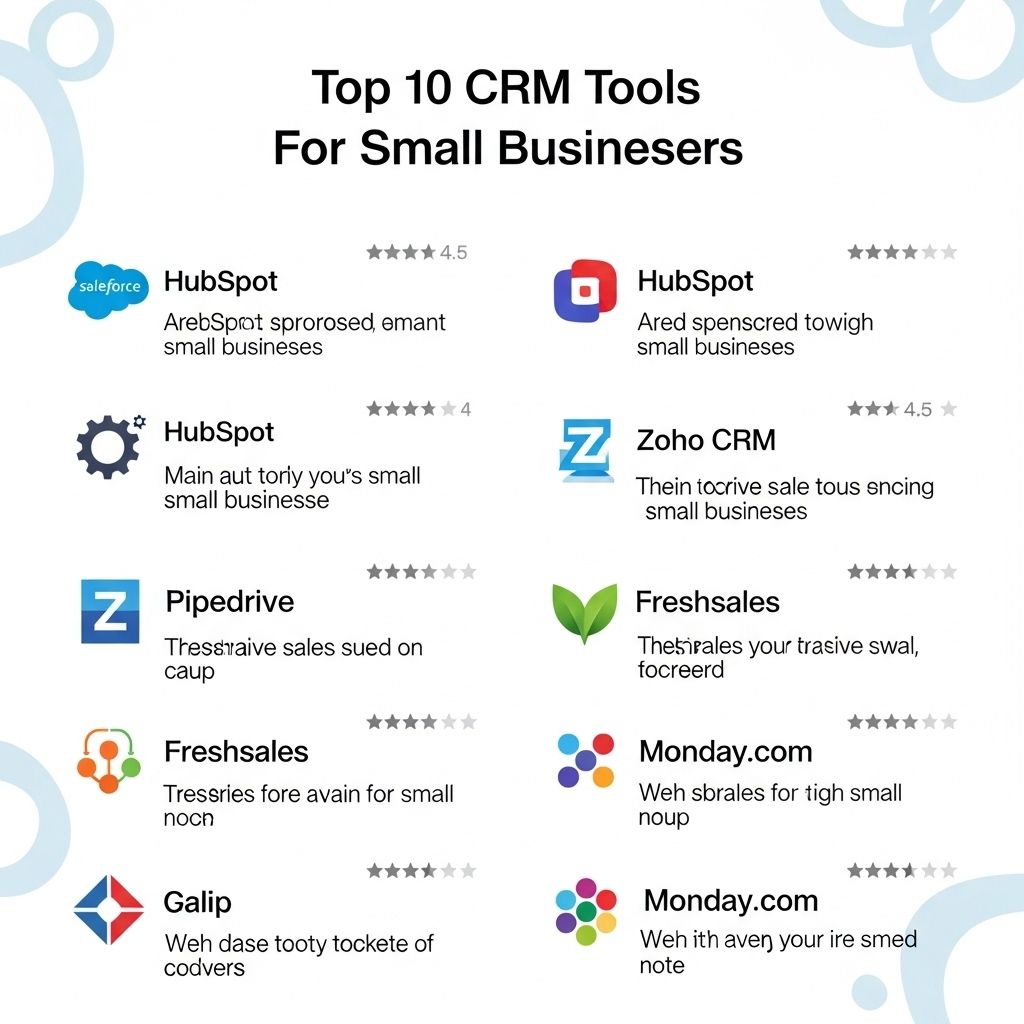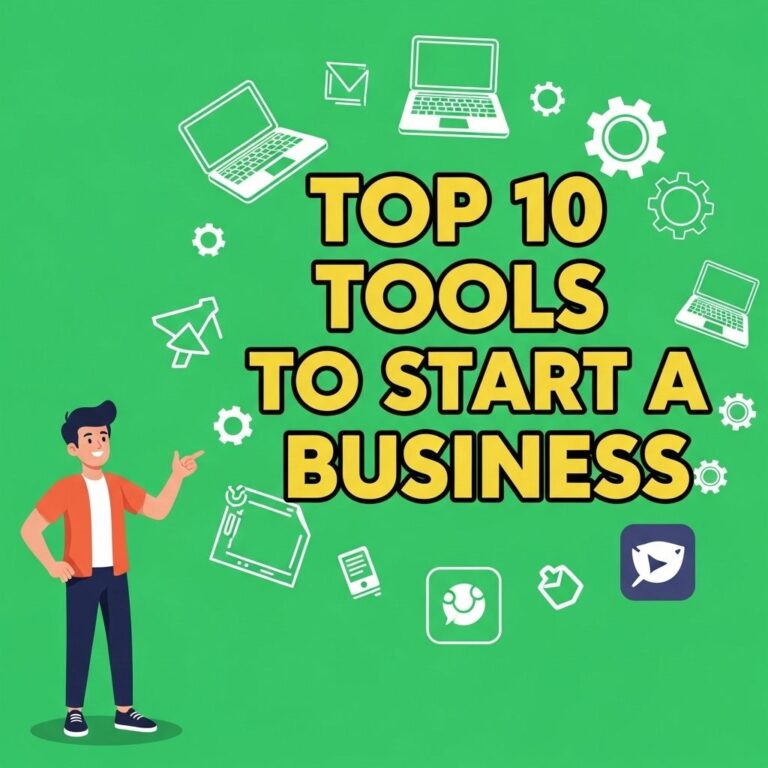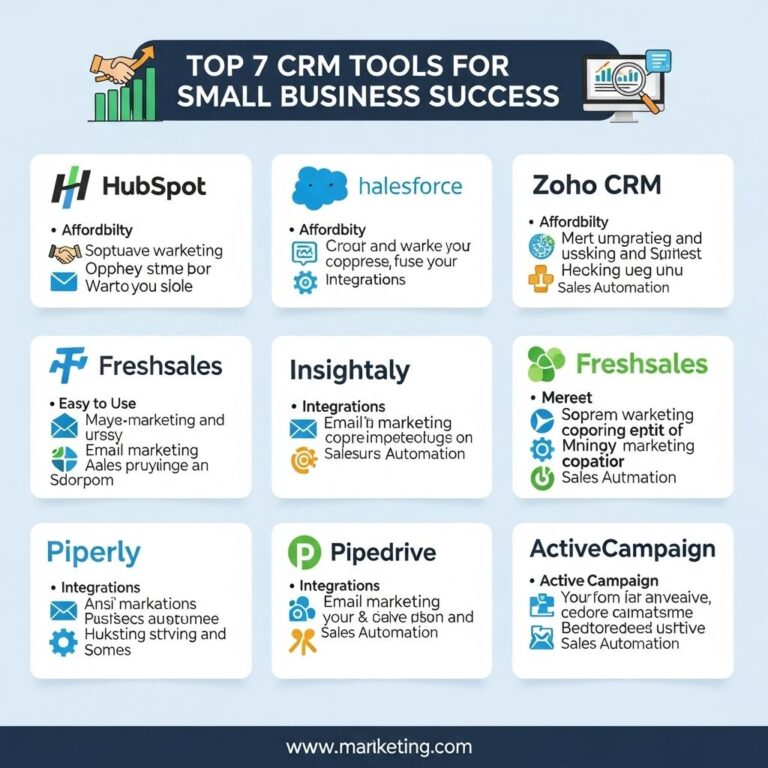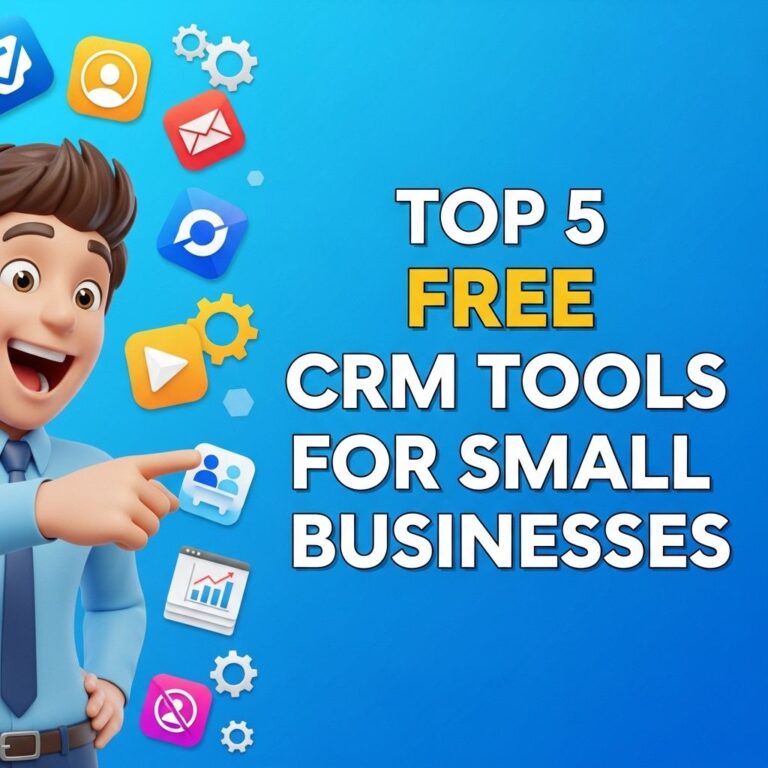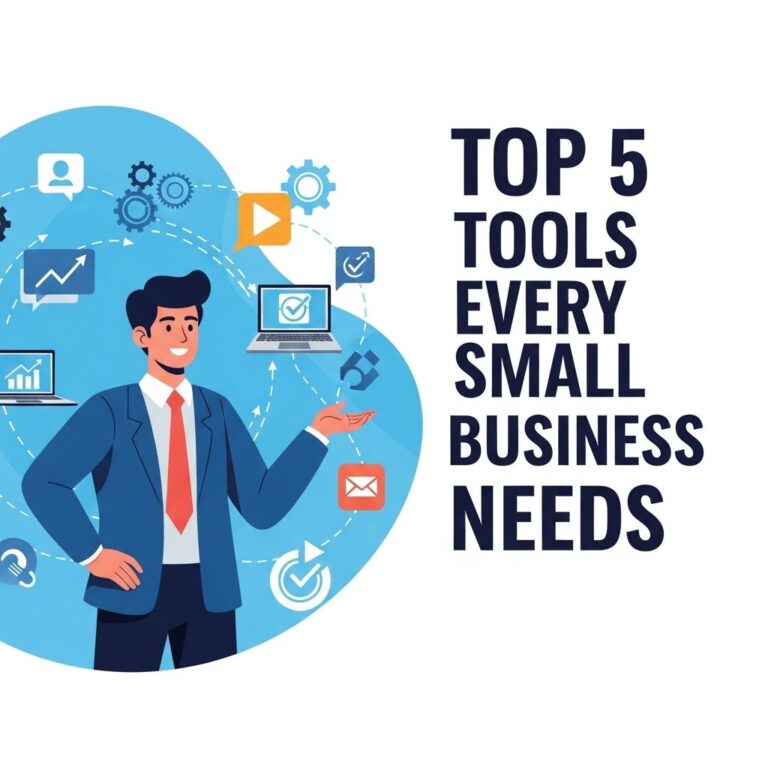In the rapidly evolving world of business, maintaining customer relationships is crucial for success. For small businesses, leveraging the right Customer Relationship Management (CRM) tool can streamline operations, enhance customer interactions, and ultimately drive growth. Selecting the ideal CRM can be a daunting task given the myriad of options available. Here, we delve into the top CRM tools tailored specifically for small businesses, discussing their features, benefits, and what makes them stand out in a crowded market.
Table of Contents
Understanding CRM Tools
CRM tools are software solutions designed to help businesses manage their customer data, track interactions, and foster communication between teams and clients. The main goal is to enhance relationships, improve customer satisfaction, and boost sales performance. For small businesses, a robust CRM allows for:
- Centralized customer data management
- Automated marketing processes
- Better sales tracking
- Improved customer support
Top CRM Tools for Small Businesses
1. HubSpot CRM
HubSpot CRM stands out as a powerful yet user-friendly tool that offers essential CRM features without the cost. It provides:
- Free version with basic functionalities
- Integration with HubSpot’s marketing, sales, and service hubs
- Customizable dashboards and reporting tools
2. Salesforce Essentials
Salesforce Essentials is crafted specifically for small businesses, providing them with the same powerful tools as its larger counterparts. Key features include:
- Intuitive user interface
- Comprehensive email integration
- Mobile app for on-the-go access
3. Zoho CRM
Zoho CRM excels in affordability and scalability, making it ideal for small to medium-sized businesses. Its notable features include:
- Custom modules and fields to tailor the experience
- AI-powered sales assistant
- Multi-channel communication capabilities
4. Pipedrive
Pipedrive is a sales-centric CRM that focuses on pipeline management, making it a great choice for small teams. The software offers:
- Visual sales pipeline tracking
- Simple integration with various apps
- Customizable reporting features
5. Freshsales
Freshsales, by Freshworks, combines CRM functionality with excellent communication tools. Its unique features include:
- Built-in phone, email, and chat features
- AI-based lead scoring
- User-friendly interface with a mobile app
6. Insightly
Insightly offers a robust set of features intended for project management alongside traditional CRM functionalities. Some highlights are:
- Project management integration
- Email tracking and mass emailing features
- Customizable dashboards
7. Nimble
Nimble shines in social CRM, making it ideal for businesses that rely heavily on social media interactions. Key aspects include:
- Social media integration for tracking engagements
- Contact management with smart segmentation
- Affordable pricing plans
8. Keap (formerly Infusionsoft)
Keap is known for its powerful marketing automation features combined with CRM functionalities. The solution offers:
- Automated workflow capabilities
- Lead capturing tools
- Flexible pricing plans based on business needs
9. Agile CRM
Agile CRM is a versatile tool that provides a wide range of features without breaking the bank. Its offerings include:
- Email tracking and marketing automation
- Customer support ticketing system
- Integrations with popular third-party applications
10. Microsoft Dynamics 365 for Small Business
Microsoft Dynamics 365 is a cloud-based solution that caters to small businesses with advanced needs. It boasts:
- Integration with Microsoft Office Suite
- Powerful analytics tools
- Customizable features to fit specific business processes
Choosing the Right CRM
When selecting a CRM tool, small businesses should consider several factors to ensure they choose the best fit. Here are some critical aspects to evaluate:
Budget
Evaluate your financial resources and determine how much you can allocate to CRM software. Many providers offer free trials or freemium models, so take advantage of these options to assess functionality.
Features and Functionality
Identify the core features your business needs. Some may require robust project management capabilities, while others may prioritize sales tracking or marketing automation.
User Experience
A user-friendly interface ensures that your team can adopt the CRM seamlessly. Consider solutions that offer training materials or customer support to ease the transition.
Integration Capabilities
Ensure the CRM can integrate with your existing software tools, such as email platforms, accounting software, or marketing tools. Seamless integration can enhance productivity and data sharing.
Conclusion
A well-chosen CRM tool can significantly enhance a small business’s efficiency and customer relations. Each of the tools mentioned in this article offers unique features that cater to different business needs. By carefully considering your requirements and testing different options, you can find the solution that best supports your growth and customer engagement strategies.
FAQ
What is a CRM tool and why is it important for small businesses?
A CRM tool is a software application that helps businesses manage customer relationships, streamline processes, and improve profitability. For small businesses, it is important as it helps organize customer data, track interactions, and enhance communication.
Which CRM tools are best for small businesses in 2023?
Some of the best CRM tools for small businesses in 2023 include HubSpot CRM, Zoho CRM, Salesforce Essentials, Pipedrive, and Freshsales, each offering unique features to cater to various business needs.
How can I choose the right CRM tool for my small business?
To choose the right CRM tool, consider factors like your budget, specific business needs, ease of use, integrations with other tools, and the level of customer support provided by the CRM vendor.
Are CRM tools expensive for small businesses?
Many CRM tools offer flexible pricing plans, including free tiers or low-cost options, making them accessible for small businesses. It’s essential to evaluate the features offered to ensure value for money.
Can CRM tools help improve sales for small businesses?
Yes, CRM tools can significantly improve sales for small businesses by providing insights into customer behavior, tracking sales performance, and automating repetitive tasks, allowing teams to focus on nurturing leads.
Is it difficult to implement a CRM system in a small business?
Implementing a CRM system can vary in complexity, but many modern CRM tools are designed to be user-friendly and offer onboarding support. Small businesses can often start with basic features and scale as needed.

